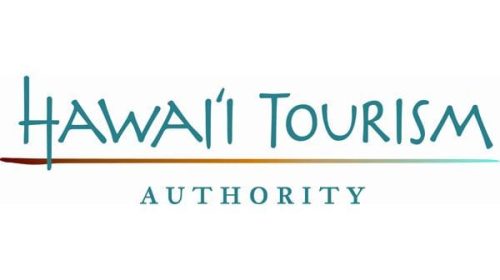What is A Resort Fee and Why Should Hawaii Residents Care?
HAWAII: May 15, 2018 -The year was 2016. Hawaii hotels had begun adding a Resort Fee to their guest’s final bills. An article entitled:” The big Hawaii hotel conspiracy, tax evasion”, was reported by eTurboNews in August 2016
The author of this article was Juergen Steinmetz, a 40-year international tourism industry veteran, and publisher of eTurboNews.
Steinmetz first began investigating the Hawaii Resort Fee by attempting to talk with local and national hotel management but was basically “stonewalled.” Even the local media and many elected officials seemed disinterested.
Steinmetz soon discovered that Hawaii’s hotels were not charging Hawaii’s mandatory 9.25 percent Transient Accommodations Tax (TAT) on Resort Fees, a significant loss of revenue to the state (the TAT was raised to 10.25 percent beginning in 2018).
In addition to Hawaii’s 4.16 percent General Excise Tax (a regressive, compounding sales tax), in 2017 the 9.25 percent TAT applied to all rental properties in Hawaii, including hotels, condos, and B&Bs and raised $508.4 million. Of that:
– the state’s General Fund received $292.4 million
– the Tourism Special Fund $82 million
– the State Convention Center Enterprise Special Fund $26.5 million
– the state Department of Land and Natural Resources received $3 million
– the Turtle Bay Conservation Easement Special Fund $1.5 million
– $103 million was allocated to the four island counties which is utilized for “essential purposes, including public education, public safety, infrastructure improvements and maintenance of park facilities.”
With a 2019 state budget set for $14.44 billion, it’s easy to see that the estimated $500+ million TAT income will only cover a relatively small part of the cost of running Hawaii’s government, schools, universities, maintenance, deteriorating infrastructure and all the rest.
2018 LEGISLATIVE BAIT AND SWITCH?
In his recent article, “Reactionary Reaction To Resort Fees,” Tom Yamachika, President of The Tax Foundation of Hawaii had this to say about the bills that were introduced in the 2018 Hawaii State Legislature concerning the TAT:
“One of the bills that has come out of the recently concluded legislative session is SB 2699, which proposes to make ‘resort fees subject to our Transient Accommodations Tax (TAT). A ‘resort fee,’ which also goes on your bill if you stay at a hotel, and not only in Hawaii but around the world, is to pay for other amenities such as use of the hotel’s weight room, or pool, or Wi-Fi internet service.
“’Oh?’ you might say. ‘I thought those things were included in the room rate.
“That’s precisely the point, both for the hotels and the Tax Department. The TAT is 10.25% of the gross room rate. Our supreme court has said, ‘in determining tax liability it is fundamental that substance, rather than the form of the transaction, governs. Actualities and consequences of a commercial transaction, rather than the method employed in doing business, are controlling factors in determining such liability.’ In re Kobayashi, 44 Haw. 584, 358 P.2d 539 (1961). Thus, if a ‘resort fee’ is actually a piece of the room charge, by any other name, then it’s taxable as a room charge.
“One of the tests that the Department is now using to figure out if a resort fee is a room charge with another name is whether the charge is ‘mandatory.’ If the fee is not part of the room charge, then a guest staying at a hotel should be able to opt out of it.
“Some of the bills that were going through the session, such as HB 2432 SD 1, would define a ‘resort fee’ subject to the TAT as: ‘any mandatory charge or surcharge imposed by an operator, owner, or representative thereof on a transient for the use of the transient accommodation’s property, services, or amenities.’ That definition doesn’t seem to be different from what the Department was already enforcing, so there wouldn’t be much harm in enacting that version. That bill died.
“Senate Bill 2699, the one that passed, defines a resort fee as ‘any charge or surcharge imposed by an operator, owner, or representative thereof to a transient for the use of the transient accommodation’s property, services, or amenities.’
“Whoa there!
“Wouldn’t that make pretty much anything on the hotel bill a resort fee? Suppose you watch an in-room movie and get billed for it. Isn’t that a charge for one of the hotel’s amenities, namely the in-room TV and movie system? What about a charge for a meal? If you were to eat in your room, or even in the hotel restaurant, for that matter, isn’t the meal charge for the hotel’s property (food), services (servers), and amenities (in your room, or in the hotel restaurant)? This certainly was not the intent of the TAT when it was enacted, and it would be far different from most hotel room taxes across the country and internationally if the tax is applied in this manner.
“Apparently, some lawmakers were unhappy that the TAT was not being applied to resort fees even if they were shown to be truly optional charges for things other than a transient room rental. So, this bill lurches in the other direction. It’s a reactionary reaction. Is this really what we want for our TAT system?”
eTurbo News will continue to investigate how this new TAT legislation plays out.




